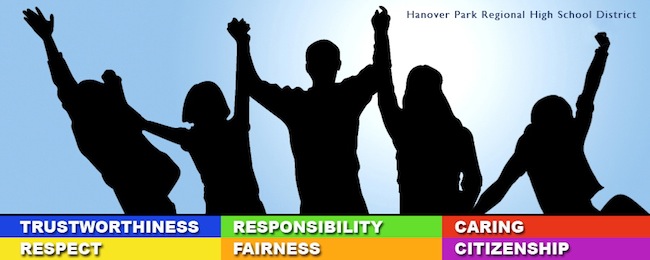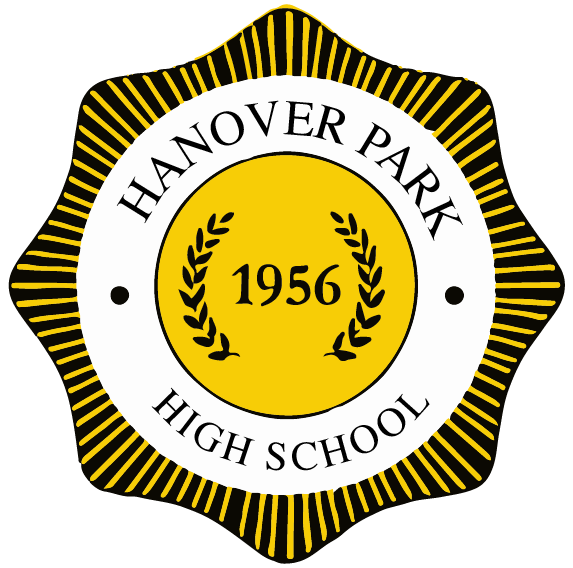Service Learning

"Service-learning benefits young people in a variety of ways. As citizens, [it] gives young people an increased sense of civic responsibility and a commitment to community involvement. As students, [it] helps improve school performance and academic engagement.
– Dr. William Richardson, President, The W. K. Kellogg Foundation
What is Service Learning?
Service learning is an act of service coupled with learning. It's important to note that acts of service alone do not qualify as service learning, service learning projects need to incorporate a learning component that can be connected to curriculum. While this can be challenging for teachers, the results can have far reaching benefits. With service learning, students learn through an authentic, meaningful experience while making a positive contribution to their world. In doing this, the sense of community is strengthened, good citizenship is developed and those involved come away with a profound feeling of accomplishment. Service learning projects tap into people's natural affinity to 'help out', so you may be surprised at the level of enthusiasm and motivation it brings.
View the National Youth Leadership online tutorial: "What is Service Learning"
Why Do Service Learning?
Service Learning:
• Builds character
• Develops civic responsibility
• Aids learning by making connections outside the classroom
• Increases student motivation
• Creates a positive view of youth by the community
Read the article "Why Service Learning is Such a Good Idea" by Shelley Billig, Ph.D.
How Can I Get Started?
The easiest way to initiate a service learning project is to seek out a need or opportunity for service (don't be afraid to get your students involved in this step!). It's helpful to note that the word 'community' in reference to community service could apply to your school community, the local surrounding community, the national community, or even global issues. Hopefully you will find the information below helpful as you explore this positive, philanthropic endeavor.
HP SERVICE LEARNING PROJECT SHOWCASE
Click here for a list of Hanover Park service learning projects that have been performed.
NOTE TO TEACHERS: Please submit service learning projects* in the the following format:
• Course, Teacher, Date
• Brief Description of project
• Curricular Tie-in
• Service (who was served & how)
• Photo of event (if possible)
SUBMIT TO:
(HP) Tom Gaglione, Character Education Coordinator tgaglione@hpreg.org
* Attention extra-curricular club advisors - while benevolent extra-curricular club activities are not generally considered service learning (because they usually lack the class curricular link), they are character building and we would like to document them as well. Please submit those projects/activities as well (just a brief description and photo will suffice)
The Four Types of Service Learning
Service Learning can be divided into the following categories...
Direct Service
Direct service activities are those that require personal contact with people in need. This type of service is generally the most rewarding for students because they receive immediate positive feedback during the process of helping others. Examples of direct service activities include students' working with senior citizens in an intergenerational project or reading to small children. Direct service teaches students to take responsibility for their actions. Students also learn that they can make a difference.
Indirect Experience
Indirect experiences are commonly implemented in schools because they are easy to organize and they involve students' working behind the scene. These activities are centered in channeling resources to the problem rather than working directly with an individual who may need the service. Often students do not come in contact with the people they serve. Examples of indirect service include collecting food or toys for disadvantaged families and participating in landscaping a community park or other environmental projects. Indirect service projects are generally done by a group. They teach teamwork and organizational skills.
Advocacy
Advocacy as a service experience requires students to lend their voices and talents to the effort to eliminate the causes of a specific problem and to make the public aware of the problem. Activities may include making presentations to the community about particular issues or distributing literature about the issues throughout the neighborhood. Students learn to present their concerns clearly, to be concise in presenting their ideas, and to suggest feasible solutions.
Community-based Research
CBR can be defined as a partnership of students, faculty, and community partners who collaboratively engage in research with the purpose of solving a pressing community problem or effecting social change. Typical CRB projects include faculty, students and community partners working together to focus local attention on pressing community needs, research and evaluate new programs, evaluate and assess existing programs, or create qualitative and quantitative research tools.
Source: Colorado State University Institute for Learning and Teaching (http://tilt.colostate.edu)
The Basic Elements of Service Learning
Preparation, Action, Reflection (PAR)
Preparation is everything done to formulate and begin the project. May include the following: research, surveying, conducting a needs assessment, interviewing, choosing a project, planning, assigning roles.
Action is the meaningful service performed by the participants for the need they chose (examples would include: teaching others about recycling, teaching others about health related issues, planting a garden, organizing a food or clothing drive for a shelter, putting artwork throughout the community, any action to raise awareness, organizing a neighborhood clean up day, writing to city officials to support a cause, getting a stoplight put in at a busy intersection, etc., etc.)
Reflection is processing of reconstructing the service experience and reaffirming the connection to learning. It occurs throughout the service learning process and can take many different forms. Reflection activities can include: participating in discussions, reading newspaper articles, making a presentation, making a scrapbook or brochure, creating a video, writing a journal, etc.
Source: Institute for Global Education & Service Learning, Levittown, PA. (www.phila.edu/institute)
Service Learning Tool Kit
You may find the following downloadable files very helpful...
Suggestions for Infusing Service Learning Into Your Curriculum (broken down by disciplines) (PDF)
Capsule Summaries of Service-Learning Projects in NJ Schools (PDF)
Creating a Service Learning Lesson in 10 Easy Steps (PDF)
Sample Service Learning Lesson Plan Template and Sample Lesson (PDF)
List of Community Collaboration Examples (PDF)
Student Reflection Questionnaire (PDF)
Additional Resources
Books available in the school library:
The Complete Guide to Service Learning, by Cathryn Berger Kaye, M.A.
Service Learning: A Guide to Planning, Implementing and Assessing Student Projects, by Sally Berman
Great Ideas: Using Service Learning and Differentiated Instruction to Help Your Students Succeed, by Pamela Gent
Web
Useful service learning websites (with excerpt descriptions):
Learn and Serve America
Learn and Serve America supports and encourages service-learning throughout the United States, and enables over one million students to make meaningful contributions to their community while building their academic and civic skills. We provide direct and indirect support to K-12 schools, community groups and higher education institutions to facilitate service-learning projects by: Providing grant support for school-community partnerships and higher education institutions; Providing training and technical assistance resources to teachers, administrators, parents, schools and community groups; and collecting and disseminating research, effective practices, curricula, and program models.
Youth Service America (YSA)
YSA supports a global culture of engaged youth committed to a lifetime of service, learning, leadership, and achievement. Our goals are to: Educate youth, teachers, community organizations, media, and public officials in the power of youth as problem solvers; and, to
engage children and youth as volunteers, as academic achievers, and as community leaders. We do this through: Public Mobilization Campaigns such as Global Youth Service Day, Semester of Service, Service Vote and engaging public officials; Funding and Recognition through grants and awards geared toward youth, educators, service-learning coordinators, and program partners. Resources and Training including the GYSD Planning Tool Kit, the Service-Learning Curriculum Guide, the National Service Briefing, the Youth Service Institute, webinars, and individual support.
National Youth Leadership Council (NYLC)
For more than twenty-five years, NYLC has led a movement that links youth, educators, and communities to redefine the roles of young people in society. That movement is service-learning, and it empowers youth to transform themselves from recipients of information and resources into valuable, contributing members of a democracy. The mission of the National Youth Leadership Council is to create a more just, sustainable, and peaceful world with young people, their schools, and their communities through service-learning.
The National Service Learning PartnershipA national network of members dedicated to advancing service-learning as a core part of every young person's education. The network consists of more than 10,000 members in all fifty states. The Partnership provides: A national network of like-minded service-learning supporters; Service-learning tools, resources, and best practices; A "service-learning marketplace" to offer or seek professional services; Monthly updates with news, resources, and opportunities to take action; Federal advocacy representation.
GoToServiceLearning
GoToServiceLearning presents examples of best practice service-learning experiences meeting state mandated academic standards - each uploaded onto the site according to an easy-to-use searchable template. Here, you will find out how teachers connect classroom content with student initiative, resulting in youth who are actively engaged in learning while making significant contributions to their communities.
Water Planet Challenge
EarthEcho International's Water Planet Challenge is an unprecedented national call-to-action that engages middle and high school youth to bring about global change by taking action in their communities through service-learning projects. When launched in fall 2010, the Challenge will provide comprehensive science-based environmental education materials, tools, and resources to empower youth to take action to restore and protect our water planet.
Service Learning in the Geosciences
Links on this site include: Recommended Resources, Sample Service Learning Projects, The 8-Block Model for Designing Your Service Learning Project, Tips on Finding Service Learning Partners, and Assessment Strategies.
The Institute for Global Education and Service Learning (IGESL)IGESL is a non-profit organization that creates service learning programs and initiates activity-based education in collaboration with schools and organizations around the world. They provide training and technical assistance to service learning practitioners throughout the United States.
The National Service-Learning Clearinghouse (NSLC)America's Most Comprehensive Service-Learning Resource - the National Service-Learning Clearinghouse (NSLC) supports the service-learning community in higher education, kindergarten through grade twelve, community-based organizations, tribal programs, and all others interested in strengthening schools and communities using service-learning. NSLC is a program of Learn and Serve America.
Available Grants
Youth Service America Open Grant Programs
State Farm Youth Advisory Board Grants
Net Literacy Financial Connects
Gloria Barron Prize for Young Heroes
Service Learning Opportunities
Attention History Classes! Check out the Veteran's History Project, sponsored by the Library of Congress - an excellent service learning opportunity!
Siemens K-12 "Power to Change the World" Environmental Sustainability Competition
Check out Edutopia's "20 Ideas for Engaging Projects". Several of the ideas are service learning-based (e.g. The 'Math Fair', and 'Public Health Service').
Winwood Assisted Living in Florham Park has worked with HP in the past.
PG Chambers School, Cedar Knolls, NJ provides educational and therapy programs for children with special needs. Contact me if you are interested in coordinating a service learning project with them.
